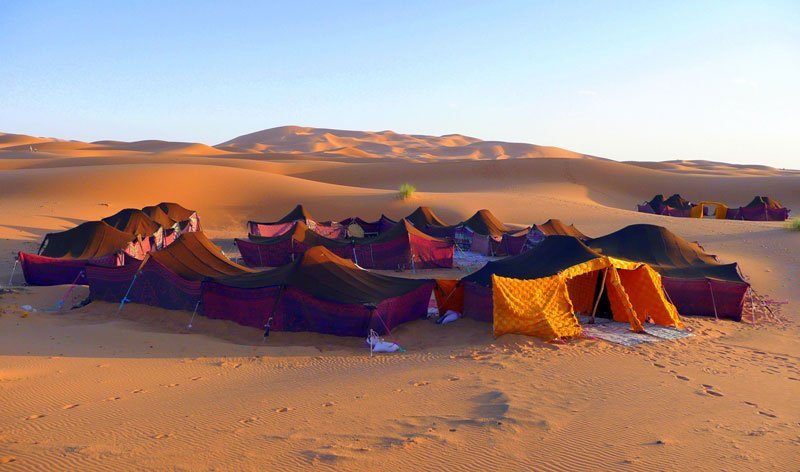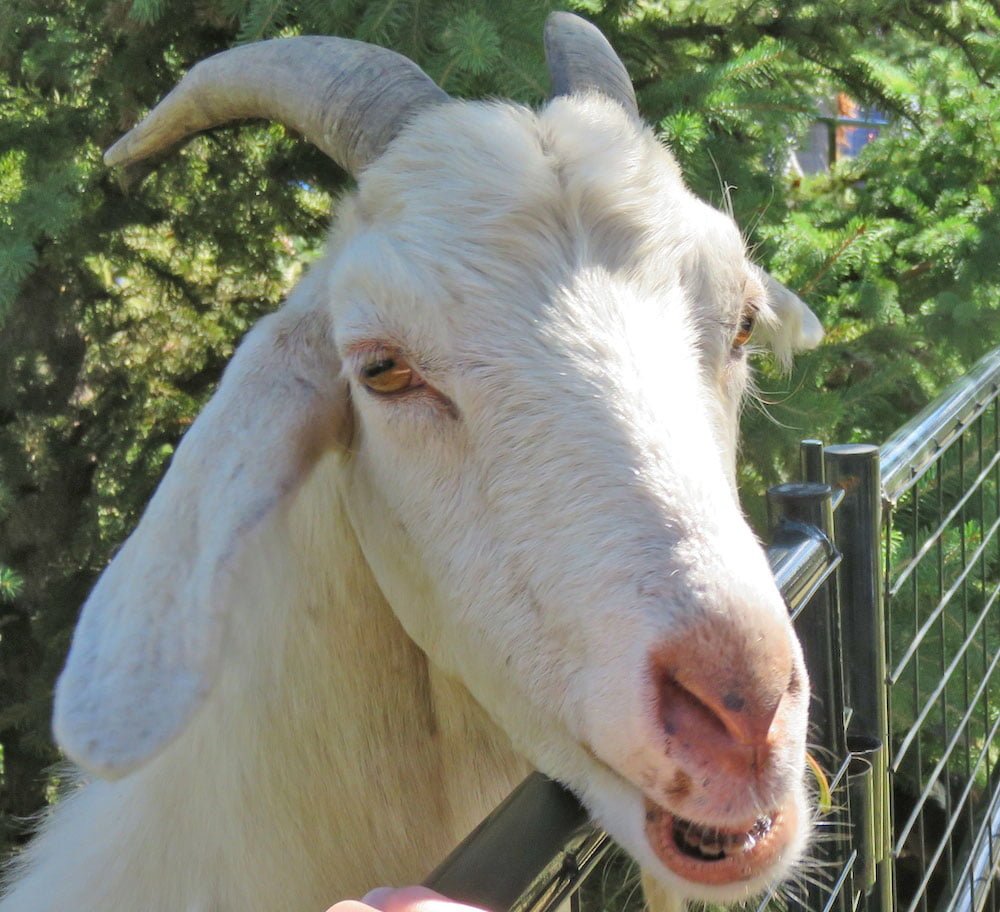
Adventures in the Sahara
I loved my night alone in the Sahara Desert. It was sharply cold, the skies were crystal clear and I have never seen so many stars. I got my sleeping bag from my backpack, climbed inside, and lay there beside the cargo we were able to save from the fire, staring up, mesmerized by the fabulous spectacle above me. For the first time in my life I experienced absolute silence. There was a peacefulness and joy to my solitude that I can still vividly recall, but could not replicate until I enjoyed another magic night under a riot of stars in the wilds of Bhutan 33 years later.
Lying snug in my bag I smiled to think of what a great adventure I was having, how much I was enjoying it, and how I was cut out for this kind of exotic experience. I didn’t know exactly how it would all work out, but was now confident that one way or another I would cross the great Sahara and explore West Africa, which surely would be a new and exciting journey.
People have often asked me if I was afraid the truck driver would never return. I wasn’t, because I knew he would come back for the remaining cargo. Besides, I was confident he was not the kind of man who would abandon someone in the middle of nowhere.
In the morning a couple of passing trucks stopped and the drivers, gazing at the still smoking carnage, asked me what happened. In my flawed Spanish I explained as best I could that there had been a fire, much of the cargo was destroyed and I was guarding what we had saved until the driver returned. They nodded, wished me well and drove off. Clearly this was the common route across the Spanish Sahara to Mauritania. If for some reason my driver never came back I could simply catch a ride with another truck.
It was mid-day when the truck driver and a few of his pals from the small city of Laayoune (or El Aaiun) rolled in and we got straight to work. I felt energized and scored some brownie points by pitching in big time and enthusiastically helping to load the cargo we salvaged on top of the new items. I assumed we would be leaving soon when suddenly I heard a loud, bleating sound behind me. I turned around and found myself looking into the face of a goat. Then I saw a mostly toothless man, one of the driver’s friends, smiling at me as he approached the goat, taking it by the neck and slashing its throat wide open with a long, sharp knife. I was shocked as the blood gushed out and the goat quickly expired, but by this time I was beginning to become accustomed to the unexpected.

The population of the Western Sahara was and is almost entirely Muslim, and sacrificing a goat in such circumstances was standard practice to ensure a safe and successful journey. I soon noticed that the other men had a good fire going and the goat was skinned and then cooked on the flames. My driver used a sharp knife to saw off a leg, handed it to me, and warmly invited me to sit beside the fire with him and his friends. When in the desert, do what the desert people do. And eat what they eat. It would have been very impolite for me to have declined, and besides, I was hungry, so I started gnawing on the goat’s leg and trying not to think about the living animal it was attached to a little earlier.
These were the kind of raw and real experiences I wanted to have, making my way across the Sahara, which is approximately the same size as the United States. First there was the truck fire, then there was a night alone in the desert, and now I was taking part in some ancient customs and eating freshly killed goat with friendly locals. What was coming next? I could hardly wait to find out.
After we all finished eating, the driver thanked his friends for their help, and they climbed into their vehicles and headed back to Laayoune. He checked to see he hadn’t forgotten anything, and then we drove off towards Bir Moghrein, which was still at least a long day away. There were no official markers for us to follow, but the hard ground formed a kind of beaten down track made by all the trucks that the driver found relatively easy to follow. Many people wrongly assume that the Sahara is all sand dunes, when in fact the terrain is almost all rock hard, totally dry and inhospitable for humans. I only witnessed beautiful sand dunes in one location in Mauritania.

It became dark fairly soon and we rode through the night as my imagination ran wild, wondering what surprises were ahead. After a few hours we came upon a massive, lit-up Bedouin encampment that spread over a great distance. It was an awesome sight.
The driver told me to wait, left the truck, and headed into the maze of tents. I sat by myself, wondering what the encampment must look like from the inside. I waited and waited and finally my patience evaporated after about a half hour. I climbed out of the truck and walked among the tents in search of the driver. I knew he wouldn’t be happy that I came looking for him, but he was gone a long time and I was curious to see the tent city. I was led to the massive and luxurious tent of the Bedouin chieftain, who smiled and beckoned me to come in. My driver did not look pleased. I was invited to join them and sat down on the magnificent carpet which covered most of the tent floor. The chieftain asked me many questions in English about where I was from, what I did there and what I thought about the places I had been to. He had a gigantic short-wave radio and said he often listened to the BBC news at night and turned it on for me to hear.
Later he invited me to share dinner with him and my driver. Water bowls were brought in and we all washed our hands in them. We then sat in a triangle in the center of the tent and a traditional tagine was placed in the middle as we all ate with our fingers and talked. I felt incredibly honoured and extraordinarily lucky. I knew I would likely never again have one, let alone two, meals like this in one day. In my mind I even forgave Dominique for his absurd unreliability and thanked him for raising the idea of crossing the Sahara. Still, I was also glad I would surely never see him again. Afterwards I lay beside the truck in my sleeping bag, thinking about everything that had happened so far and trying to imagine what other surprises lay in store.
I got up early the next morning, still excited about my experience in the Bedouin tent the night before, and anticipating arriving at Bir Moghrein and starting the final leg of the journey, across 1,500 km of rough Mauritanian track through the Sahara to Senegal. We got an early start and expected to arrive well before dark.
We were cruising along through the desert when something far away drew my attention. It certainly seemed like a huge, shimmering body of water and I thought – could that be a mirage? I knew that mirages are a natural phenomenon in which light rays are bent, often creating the illusion of a body of water where there couldn’t be one, but when you’re looking at a mirage in the middle of the Sahara Desert it is an amazing and tantalizing optical illusion. I knew what I was seeing couldn’t possibly be a lake, but it sure seemed like one, which fascinated me. I looked over at the driver and he looked back at me with a big smile on his face. He didn’t say a word, but he had probably seen this mirage many times and knew exactly what I was thinking.
We drove on and on through the barren desert for many hours before the driver stopped in the middle of nowhere and got out of the truck. I wondered what he was doing and he turned to me and explained that this was the actual unmarked border between the Spanish Sahara and Mauritania. There were no border offices here, he said, but we would have to check in with officials in Bir Moghrein. A short time later I heard the tell-tale bleating of a small goat and I knew what was coming. What puzzled me was where he picked up the goat and how come I never saw it until now. I suspect he bought it at the Bedouin encampment and I didn’t see the goat because it was mixed in with the cargo.
A short time later he and I were giving thanks for another successful, if somewhat checkered, journey and gnawing on another goat leg, fresh off the fire. The driver and I had gone through a lot together and I felt like we had built a relationship of some kind. A friendship would be too strong a term, but a solid mutual respect sounds about right. After getting our passports stamped in Mauritania he said goodbye and we shook hands. He went out to buy goods for the return trip to Laayoune and I set off to explore the town.
My journey from Laayoune to Bir Moghrein was thrilling and a little crazy but not terribly dangerous. Today it is VERY dangerous. Fifteen months after I made my journey through the Sahara the Polisario guerrillas began attacking colonial outposts and more recently Mauritanian soldiers shut down the route I took to Bir Moghrein, partly because desert pirates have been kidnapping western travellers and demanding ransoms. The rebels have now also planted thousands of landmines on the track that I rode on back in 1972. In addition the Moroccan government has built a 1,500 km wall in an attempt to keep the Polisario guerillas from attacking territory claimed by Morocco.
Feature image of the Bedouin camp from Lindsey Viscomi (Pinterest)
Read Part I – The Call of the Wild here.